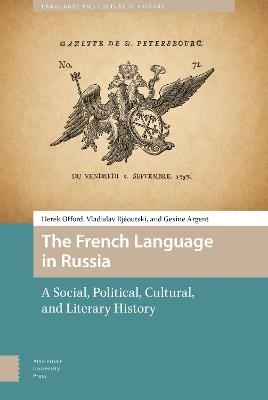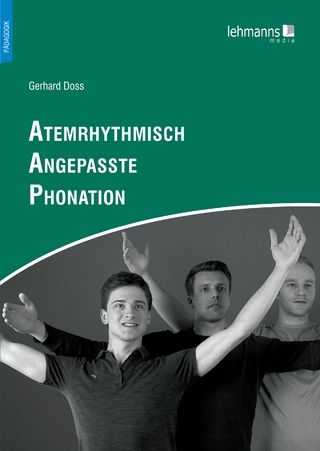
The French Language in Russia
Amsterdam University Press (Verlag)
978-94-6298-272-7 (ISBN)
- Titel ist leider vergriffen;
keine Neuauflage - Artikel merken
-- With support from the Arts and Humanities Research Council of the UK and the Deutsches Historisches Institut Moskau --
The French Language in Russia provides the fullest examination and discussion to date of the adoption of the French language by the elites of imperial Russia during the eighteenth and nineteenth centuries. It is interdisciplinary, approaching its subject from the angles of various kinds of history and historical sociolinguistics. Beyond its bearing on some of the grand narratives of Russian thought and literature, this book may afford more general insight into the social, political, cultural, and literary implications and effects of bilingualism in a speech community over a long period. It should also enlarge understanding of francophonie as a pan-European phenomenon. On the broadest plane, it has significance in an age of unprecedented global connectivity, for it invites us to look beyond the experience of a single nation and the social groups and individuals within it in order to discover how languages and the cultures and narratives associated with them have been shared across national boundaries.
Emeritus Professor Derek Offord, Senior Research Fellow, University of Bristol. Specialist in Russian cultural and intellectual history and the author or editor of books on early Russian liberalism, Russian travel-writing, the history of Russian thought, and the modern Russian language. Dr. Vladislav Rjéoutski, research fellow at the German Historical Institute in Moscow. Co-director of the DFG-funded research project on the languages of diplomacy in the eighteenth-century Russia, co-author (with Derek Offord and Gesine Argent) of: The French Language in Russia. A Social, Political, Cultural, and Literary History (Amsterdam: AUP, 2018). Dr Gesine Argent is Centre Manager and Research Associate at the Princess Dashkova Russian Centre at the University of Edinburgh. Her research focuses on Russian language culture, language ideology, and language purism.
List of illustrations Preface Acknowledgements Presentation of dates, transliteration, and other editorial practices Abbreviations used in the notes The Romanovs Introduction Conventional assumptions about Franco-Russian bilingualism Russia and 'the West', and the two Russias Empire, nation, and language Sociolinguistic perspectives Methodological considerations Literature as a primary source Chapter 1: The historical contexts of Russian francophonie The spread of French in seventeenth- and eighteenth-century Europe The westernization of Russia in the eighteenth century The introduction of foreign languages into eighteenth-century Russia The golden age of the nobility The Napoleonic Wars and the Decembrist Revolt The literary community and the intelligentsia in the age of Nicholas I Chapter 2: Teaching and learning French An overview of French teaching in Russia French versus German French versus Latin French (and English) versus Russian Acquiring social and cultural codes by learning French Chapter 3: French at court The discovery of sociability French as a sign of the status of the Russian court French as a court language under Catherine II French at the nineteenth-century court French as a royal language Chapter 4: French in high society The place of French in the noble's linguistic repertoire French in the sites of noble sociability The spirit of the grand monde and social relations in it Francophonie and social identity French beyond the metropolitan aristocracy Chapter 5: French in diplomacy and other official domains The Chancery of Foreign Affairs and language training for Russian diplomats The gradual rise of French in European and Russian treaties Turning to French for the conduct of Russian diplomatic business The influx of French loanwords into Russian diplomatic parlance Language use in internal communications about foreign affairs The triumph of French in the diplomatic community and the limits to its use French and Russian in other official domains French at the Academy of Sciences Chapter 6: Writing French Types of text and language choice in them Language choice in nobles' personal correspondence Language use in diaries, travel notes, memoirs, and albums Writing French to join Europe Count Rostopchin's 'memoirs' Women's place in the literary landscape Early nineteenth-century women's prose fiction Chapter 7: French for cultural propaganda and political polemics Transforming Russia's image Cultural propaganda in French in the age of Catherine Russian use of the Francophone press in the age of Catherine and beyond The promotion and translation of Russian literature Chaadaev's first 'Philosophical Letter' Geopolitical polemics around 1848 Polemical writings in French after the Crimean War Chapter 8: Language attitudes Language debate and its place in discourse about national identity The development of Russian language consciousness Linguistic Gallophobia in eighteenth-century comic drama The linguistic debate between Karamzin and Shishkov Rostopchin's Gallophobia Literary reflection on francophonie in the 1820s and 1830s A Slavophile view of Russian francophonie: Konstantin Aksakov Chapter 9: Perceptions of bilingualism in the classical Russian novel The rise of the novel and the expression of nationhood in it Ivan Turgenev Lev Tolstoi: War and Peace Tolstoi: Anna Karenina Fedor Dostoevskii Conclusion The functions of French in Imperial Russia The changing climate in which French was used Cultural borrowing and language use in grand narratives about Russian culture Bibliography Archival sources Published primary sources Secondary sources Index
| Erscheinungsdatum | 26.09.2018 |
|---|---|
| Reihe/Serie | Languages and Culture in History |
| Zusatzinfo | 15 Illustrations, black and white |
| Verlagsort | Amsterdam |
| Sprache | englisch |
| Maße | 156 x 234 mm |
| Themenwelt | Geisteswissenschaften ► Sprach- / Literaturwissenschaft ► Sprachwissenschaft |
| ISBN-10 | 94-6298-272-4 / 9462982724 |
| ISBN-13 | 978-94-6298-272-7 / 9789462982727 |
| Zustand | Neuware |
| Haben Sie eine Frage zum Produkt? |
aus dem Bereich


